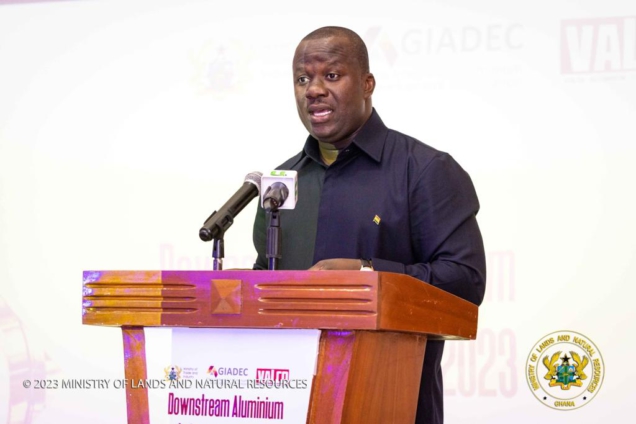The Minister for Lands and Natural Resources, Mr. Samuel Abu Jinapor has underscored the need to develop the aluminium downstream industry in Ghana.
According to him, failure to do so over the years, has deprived the country significant revenue and employment opportunities for the youth.
Mr. Jinapor, who doubles as the Minister of Trade and Industry said this at the opening ceremony of a two-day workshop on the aluminium downstream industry in Ghana.
The workshop, which was held in Akosombo was aimed at eliciting stakeholder input to develop a policy framework and implementation plan for an aluminium integrated industry for the country.
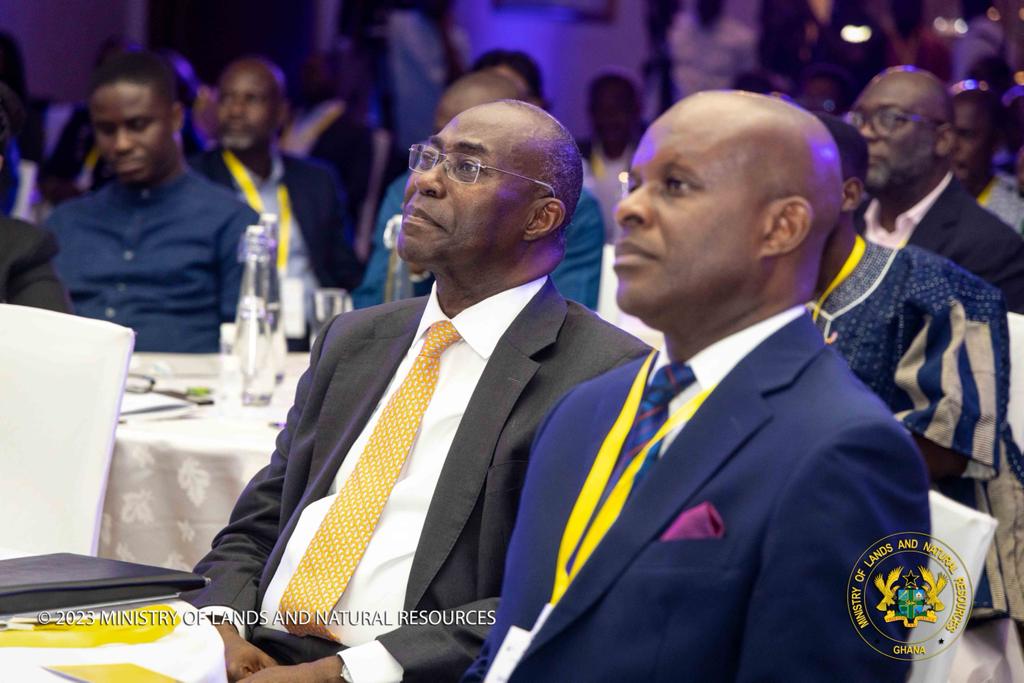
It was organised by the Ghana Integrated Aluminium Development Corporation (GIADEC), in partnership with the Strategic Anchor Industries Unit of the Ministry of Trade and Industry and the ODI (formerly Overseas Development Institute, with funding from the United Kingdom Government's Foreign, Commonwealth and Development Office (FCDO).
The Minister noted that With an estimated bauxite resource base of over nine hundred million metric tonnes (900,000,000Mt), experts say that developing an integrated aluminium industry, “can create over two million sustainable jobs and generate over One Trillion US Dollars (US$1,000,000,0000,000.00) in revenue for our country.”
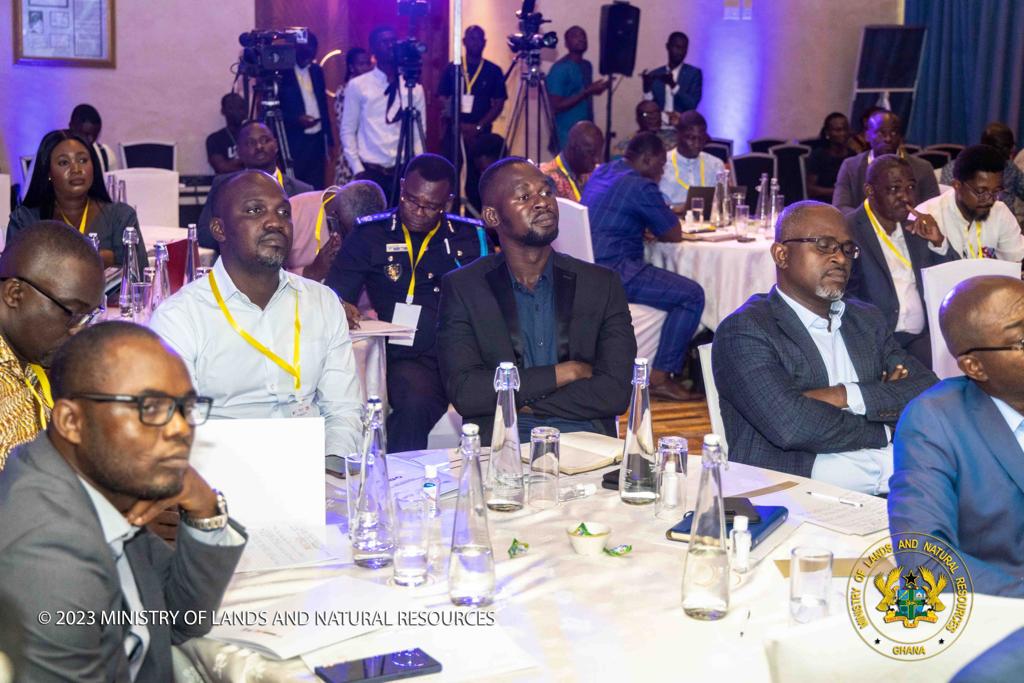
“Apart from job creation and revenue generation, a fully-integrated aluminium industry will build local expertise through the transfer of technology and contribute to Government’s industrialisation Agenda and infrastructural development,” he added.
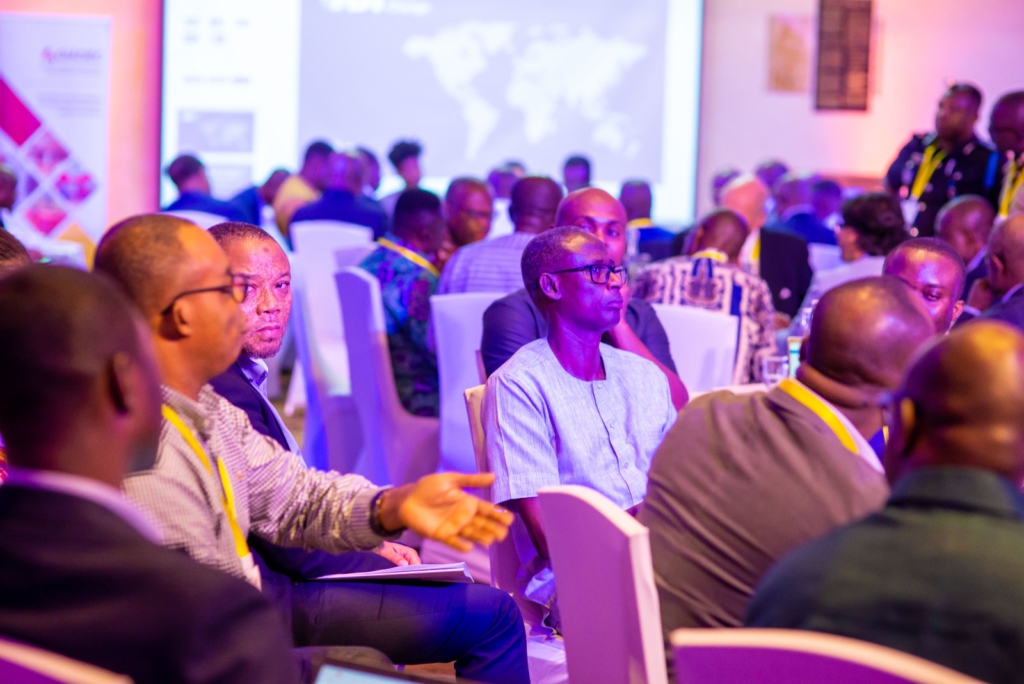
Mr. Jinapor therefore stressed the need for value addition to the alluminium produced in Ghana, “the real value of our mineral resources, lies in value addition. For example, while bauxite sells around Forty to Sixty US Dollars per metric tonne (USD40 – 60), refined bauxite, alumina, sells for over Four Hundred US Dollars (USD400) per metric tonne, and primary aluminium, produced from the alumina, goes for Two Thousand US Dollars (USD2,000) per metric tonne.
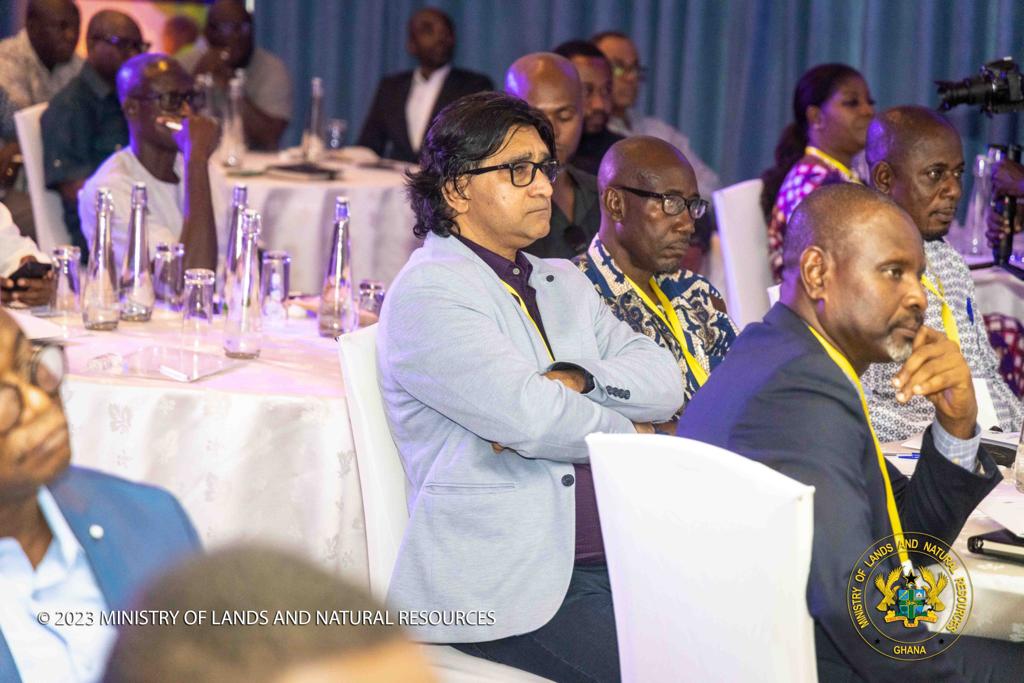
“Unfortunately, our failure, over the years, to put in place a mechanism for developing this integrated industry has deprived us of the much-needed revenue that will accrue from these resources,” he stated.
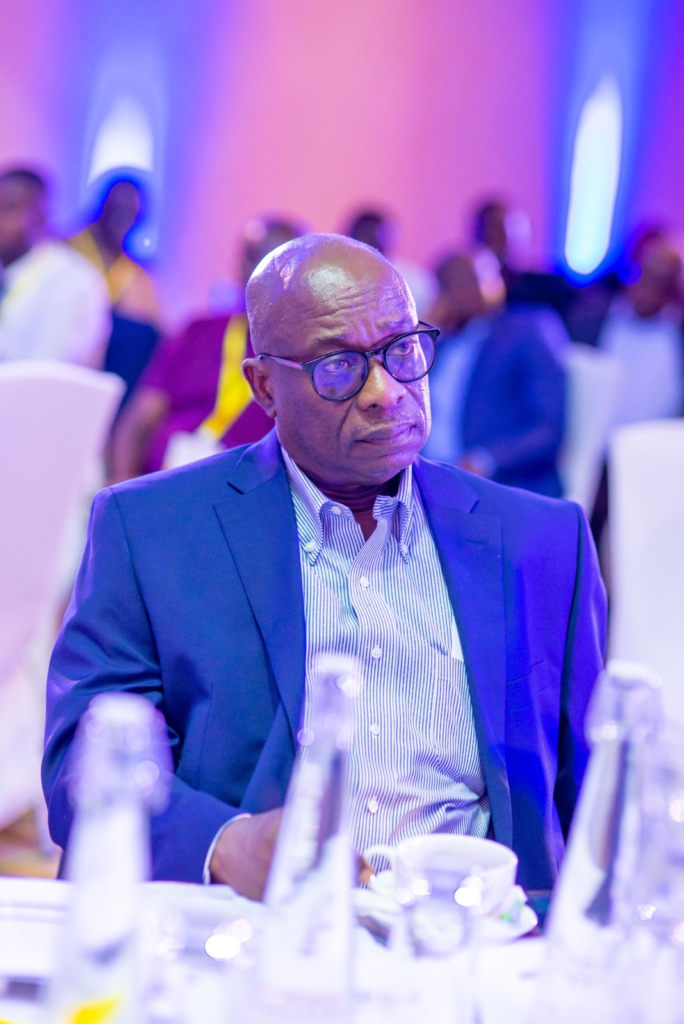
In an interview with newsmen on the sidelines of the workshop, the Chief Executive Officer of GIADEC, Mr. Michael Ansah, said the African Continental Free Trade Area (AfCFTA) offers access to a market of about 1.2 billion people across Africa. GIADEC is therefore positioning itself to take advantage of this opportunity through its master plan.
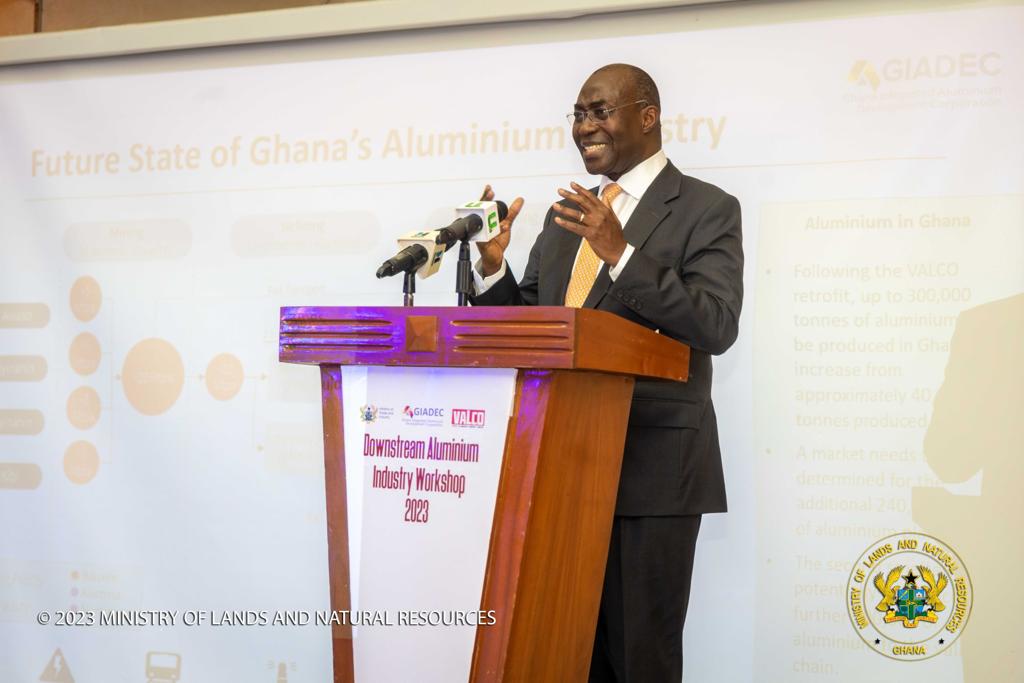
“This is a huge opportunity for companies to develop the downstream side of things. The missing component for us is the aluminium refining part of it. What we are doing now is preparing the policy environment, the incentive framework that will support the downstream industries that will be set up.
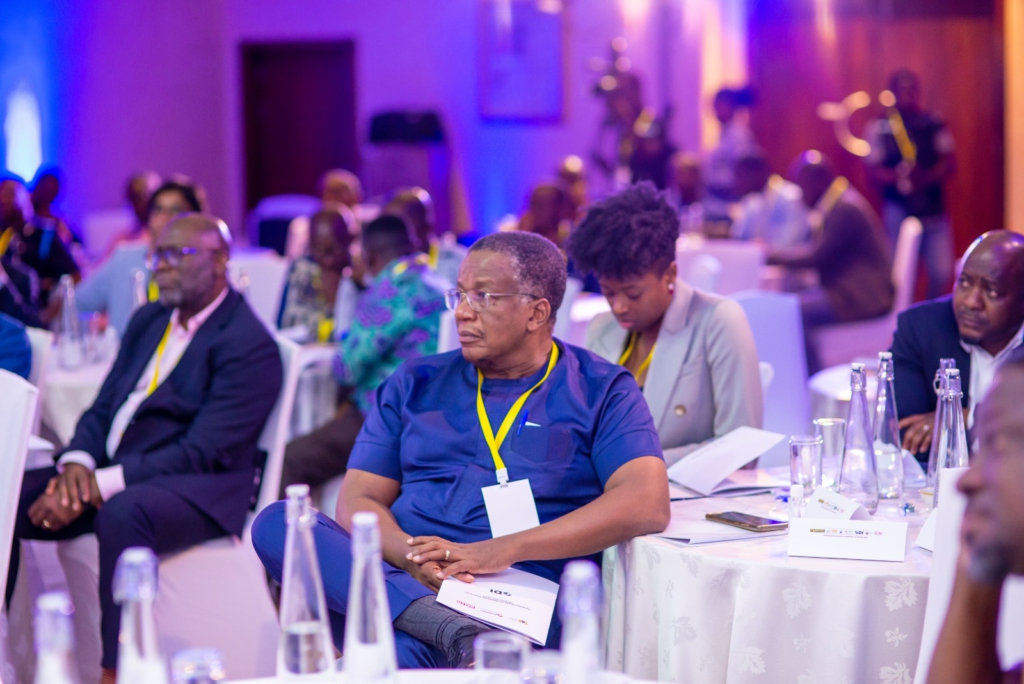
We are working in an integrated way. If you take the car assembly plants, nine manufacturing companies in Ghana producing cars for Ghanaian market and for export. In the future they will need aluminium products. Apart from the car industry, we are looking at construction, foil production and a whole raft of things. The global economy is in need of aluminium and we think establishing the integrated aluminium industry will propel us to lead in this direction,” he explained.
According to Mr. Ansah, cost of power and tax incentives will feature prominently in the policy framework that would be developed at the end of the workshop.
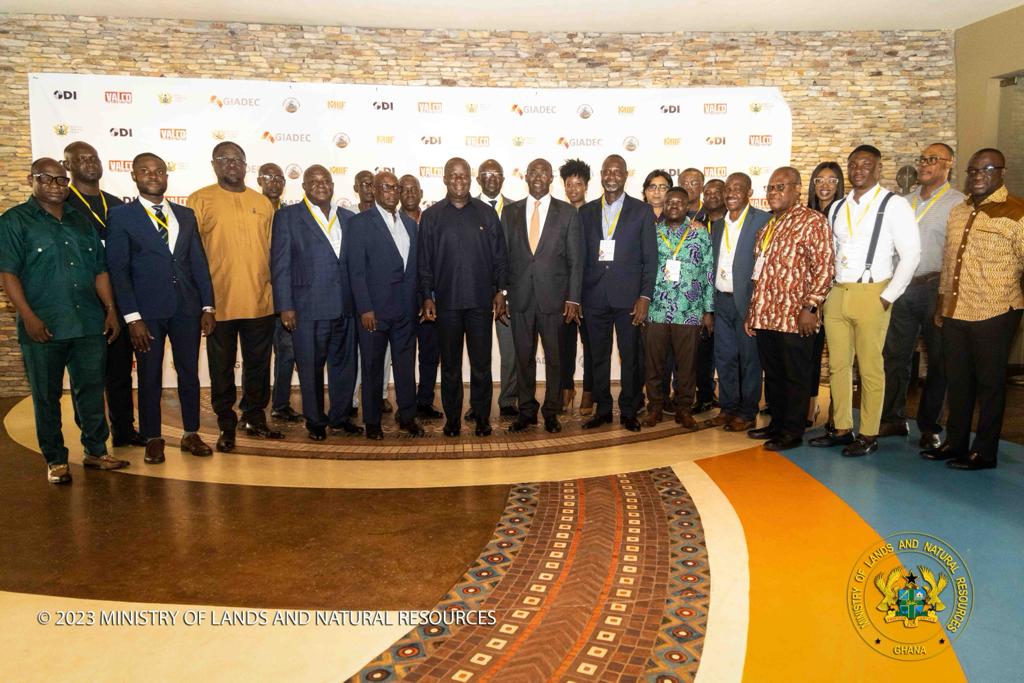
Discussions during the session will focus on the downstream industry in South Africa, economic benefits of the downstream and strategies for developing domestic and export markets.
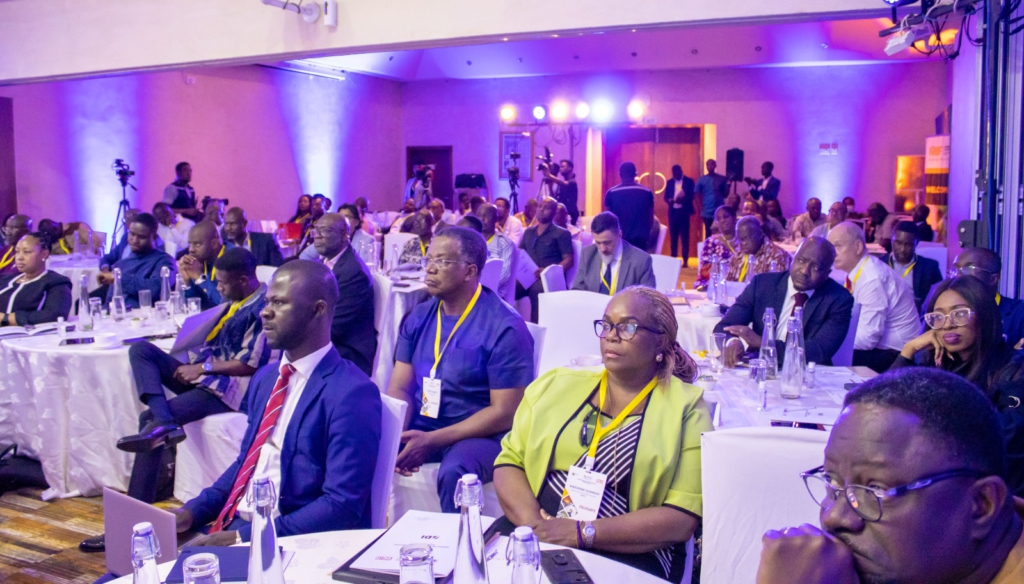
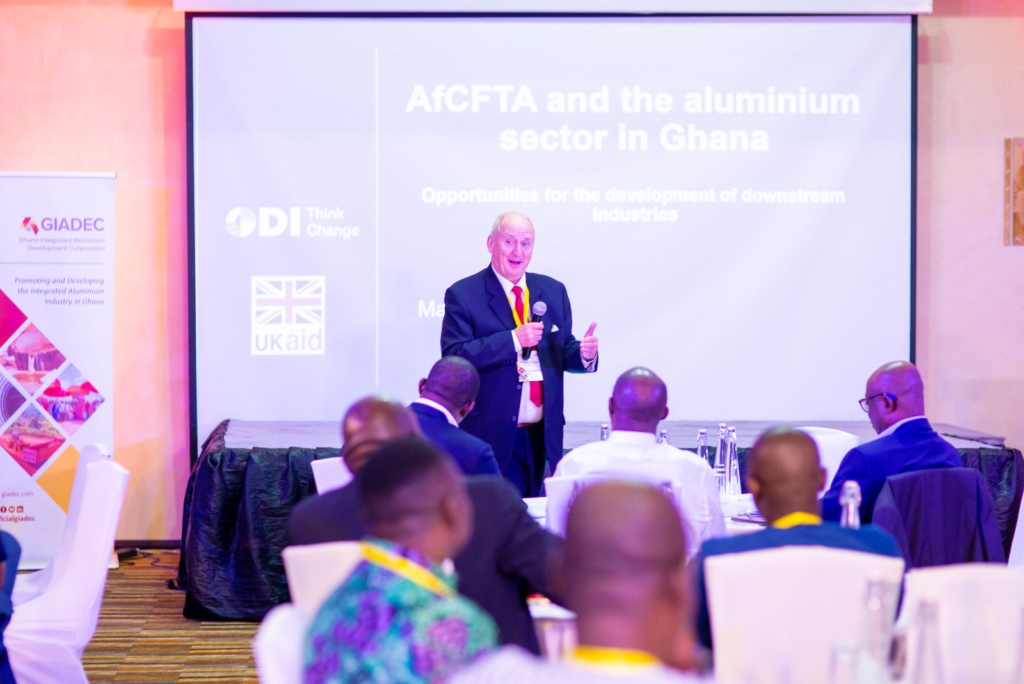
Latest Stories
-
Let’s prioritize research quality in higher education institutions for industrial growth-Prof. Nathaniel Boso
5 hours -
Herman Suede is set to release ‘How Dare You’ on April 24
9 hours -
Heal KATH: Kuapa Kokoo, Association of Garages donate 120k to support project
9 hours -
KNUST signs MOU with Valco Trust Fund, Bekwai Municipal Hospital to build student hostel
9 hours -
The influence Ronaldo has on people, Cadman Yamoah will have same on the next generation – Coach Goodwin
10 hours -
Gender Advocate Emelia Naa Ayeley Aryee Wins prestigious Merck Foundation Awards
11 hours -
South Africa bursary scandal suspects granted bail
11 hours -
Ecobank successfully repays $500m Eurobond due April 18
11 hours -
Re: Doe Adjaho, Torgbui Samlafo IV, call for Unity among Paramountcies in Anlo
11 hours -
Extortion and kidnap – a deadly journey across Mexico into the US
11 hours -
Rihanna says fashion has helped her personal ‘rediscovery’ after having children
11 hours -
Development Bank Ghana targets GH¢1bn funding for commercial banks in 2024
12 hours -
Shatta Movement apologises to Ghana Society of the Physically Disabled after backlash
12 hours -
Sammy Gyamfi writes: Tema-Mpakadan Railway Project; A railway line to nowhere
13 hours -
Bright Simons: Is the World Bank saving or harming Ghana?
13 hours

